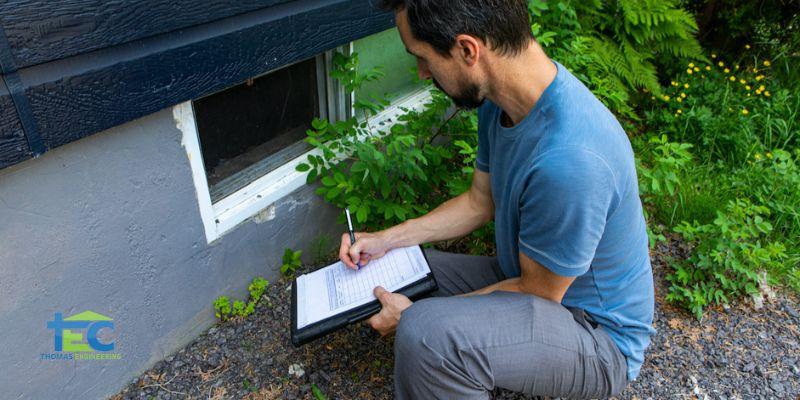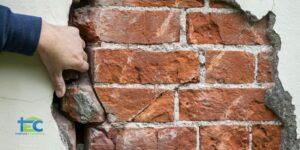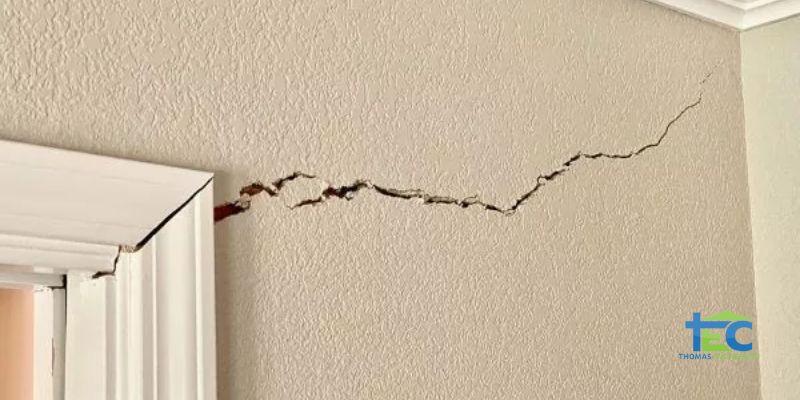
Some parts of your home are vital, including the foundations, walls, and roof. As a property owner, you must conduct regular structural foundation evaluations to avoid foundation issues and ensure the safety of the residents. A professional inspector will be able to detect any problem before it becomes worse and prevent expensive repairs.
What Is Regular Structural Foundation Evaluation?

Structural foundation evaluation refers to systematically and carefully monitoring a building’s stability and integrity by ensuring its durability. This comprehensive evaluation includes qualified engineers and geotechnical experts.
The crucial steps include visual inspections, measuring foundation settlement, analyzing cracks, and evaluating soil conditions. For all of these, there may be a need to use advanced technologies such as ground-penetrating radar. Frequent evaluation helps identify possible issues, such as soil-related problems, moisture damage, and settlement.
Detecting issues early allows for actions that significantly reduce the possibility of structural damage and related repair costs. This leads to informed decision-making on the foundations’ maintenance, repairs, and structural improvement.
Why Regular Structural Foundation Evaluation Is Vital for Property Owners
You should have a foundation inspection if the home inspector mentions possible issues with the foundation when buying or selling a home. As a property owner, if it has signs of this problem, you should consider taking an inspection. These inspections are compulsory for good property management.
Below are the top reasons why regular structural foundation evaluation is important for a property owner:
1. Prevention of foundation issues

Proper evaluation of the structural foundation at intervals will help detect potential problem areas before they become bigger. Also, property owners may only notice minor problems, such as leaks and cracks, after some time. You must seek professional inspections, as trained eyes can detect such signs at an initial stage.
Additionally, the early detection of foundation issues enables property owners to undertake preemptive steps to prevent more severe damages. It is often cheaper to prevent damage than to fix major damage to the foundations. It is a financially rational approach to maintaining the building’s structural stability through these evaluations.
2. Preservation of property value
The state of a property could considerably affect its price, with even a single crack in the foundation leading to a property appearing more damaged than it is. The property should always be in good condition with timely, routine structural evaluations to prevent deterioration. As a property owner, you preserve the value of your property this way.
Additionally, the property’s commitment to regular inspections reduces the chances of undetected structural issues, attracting potential buyers. For this reason, it is important that, as a property owner, you conduct a regular structural foundation evaluation to preserve the integrity of your property and maintain its value.
3. Ensuring safety
Property owners need to ensure that the occupants of the structures are not exposed to risks since an unsafe foundation is dangerous to both the system and the people living inside it. Routine structural evaluation helps detect problems that may cause instability. These problems have to be identified and addressed to ensure a secure environment.
Besides reducing dangers, proactive measures help ensure that property owners get value for their money and reduce the likelihood of incidents. It is a proper way because it ensures property owners provide for a thorough general structural inspection. This helps to support the overall safety of all people related to the property and create a secure environment where one can stay.
4. Regulation compliance
Structural safety is an important guideline, and building codes exist to protect structural safety and should never be ignored. Regular structural evaluations of the foundations are essential in ensuring property owners comply with the guidelines set by these regulations. Non-compliance may result in fines or mandated corrective actions.
Also, disregarding them may be costly in the long run. Additionally, refusal to address such assessments may also result in the property having legal issues while compromising the stability of the building itself. Timely inspections help to ensure that the property owner complies with requirements without legal problems.
5. Customized maintenance
Regular evaluation of foundations provides detailed information on the property’s condition and enables the establishment of specific repair projects. Information is collected and used to develop particular repair strategies targeting those repairs essential for the continued economic life of a building.
A customized approach extends the property’s lifespan and ensures the fast handling of urgent issues. Focusing on vital repair work may help property owners spend less on long-term maintenance and reduce potential damages or liability. This means a cost-effective way of ensuring their foundations are sound.
6. Assurance in a deal
If you are considering selling your property, have periodic foundational structural evaluation records to show credibility. With this report, potential new owners become more confident since regular maintenance has occurred. It provides a detailed structural inspection report that is a testimony of the care you, as a property owner, have shown toward your home.
Employing this proactive approach puts your property at an advantage over similar properties in the market and builds trust. Also, it is vital to point out that the chances of success among customers increase considerably if the buyers are convinced that the building is properly maintained.
Conclusion
Property owners need to undertake periodic evaluations of the foundation regularly. These provide early warning of any damage and an opportunity to intervene promptly. This way, they can avoid expensive damages. Regular evaluation maintains properties’ durability, enabling owners to save money and ensure property structure remains in place.





